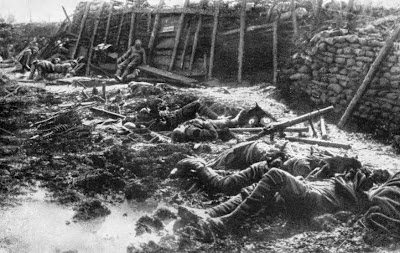Fig. 1. How the six-eight year old me thought a farmhouse in the Ypres Salient looked like during the First World War in October 1917
For 45 years I have dwelt on how the images in my head associated with stories my grandfather told me about the First World War changed from those of a six year old, to an eleven year old, through my thirties and forties ... my childhood conception of the imained world depended on the little I had personally seen and experienced. When my grandfather spoke of keeping his machine gun in a pillbox pointing at a farmhouse held by 'Jerry' For three days I at first pictured an intact farm building, the kind I often saw in a rolling and lush Northumbrian landscape, with the heavy stone walls and full deciduous trees I knew from being driven down bouncy country lanes north east of Alnwick heading for Chathill and our fisherman's holiday cottage in Beadnell. The pillbox in my imagination would have had to been like those left from the Second World War on the beach that my brother and I played in - and used as a urinal. Age eleven a few ghastly black and white pictures from the First War and the title sequence from the BBC Series 'The Great War' coloured my imagination: it added a soundtrack, skulls and broken trees, but not the scale, nor the mud, not the rain, the cold, thirst and hunger. Although he could mimmick every shell the sound effects my grandfather made could never get close to the terrifying sound os something large and dangerous approaching and then the almighty bang that followed.
In my twenties I got to the Ypres Salient in summer: it was dry, a new autoroute split and the noise of traffic created a barrier. Several TV efforts at recreating the war failed, not least as my thoughts expended to take in the thoughts of a what it meant to be a young man in those conditions, that you were in and out for a bout of two or three days. The rest of the time if not on fatigues or carrying parties you were looking for things to do.
Only now, thoroughly immersed in hundreds of currated photographs and having looked on destroyed, wet massively scarred landscapes from open mining, having smelt rotting flesh - not human, but a dead sheep several days gone, am I starting to develop a true image. With teenage children of my own it is too easy to imagine the horror of sending them to war. Images of what happens to a body when hit by shrapnel or bullets, or blown apart by shells are readily available. There is little left for my imagination to do, other than to see another drama reconstruction and feel that nothing has done it better than 'All Quiet on the Western Front.' It looks dated, somehow caught in the early 1970s when it was finally made, but 'Johnny Got His Gun' leaves you with the desired sense of hopelessness, horrror and despair that one ought to have.
Fig 2. As it was. The dead behind a stone wall. The very same image my grandfather had while he sat it out in the remains of a recently captured 'Jerry' strongpoint.
75 years after leaving that pillbox with two friends burried my 96 year old grandfather broke down: telling his stories as stories had been his escape from it, but back on the same soil, at the very spot with the light and low landscape just as it had been it once again had become horribly real. He withered away after that as if the reality of the war brought home to him made him whither from the inside out.
For all this 'Jerry' to me is still a black cartoon cat and the 'Hun' something barbaric from the fall of the Romans as a drawing in a Ladybird book. We are our own film directors when it comes to reading; an author is a catalyst to our thoughts that can conjure up anything - which, in part, is the fun of it. We inhabit a world of our own in the orchestra of our minds, the author the composer, as readers we conduct, as listeners or viewers the director injects a piece of their own mind.


Comments
New comment
Fascinating observation. We're all very good at blotting out whatever we want to blot out. I've sanitised WWI in my mind to a handful of black and white photographs. I don't hear the shells or screams, I don't smell the rotting dead or the latrine trenches, and I don't feel the horror, heartache and fear. In my mind it exists as words and pictures - if I really thought hard about it, I probably end up with shell shock (or PTS as we call it today).
New comment
I loved a comment my son made when he was young. 'Was it always Black and White in the past?' Colour tinted photos and film of the First World War make it feel more like the 1950s or 1960s. For all its dreadful horror though my extensive reading leaves me with the feeling that it quite quickly become an alternative way of life. People knew nothing else. It was a job.